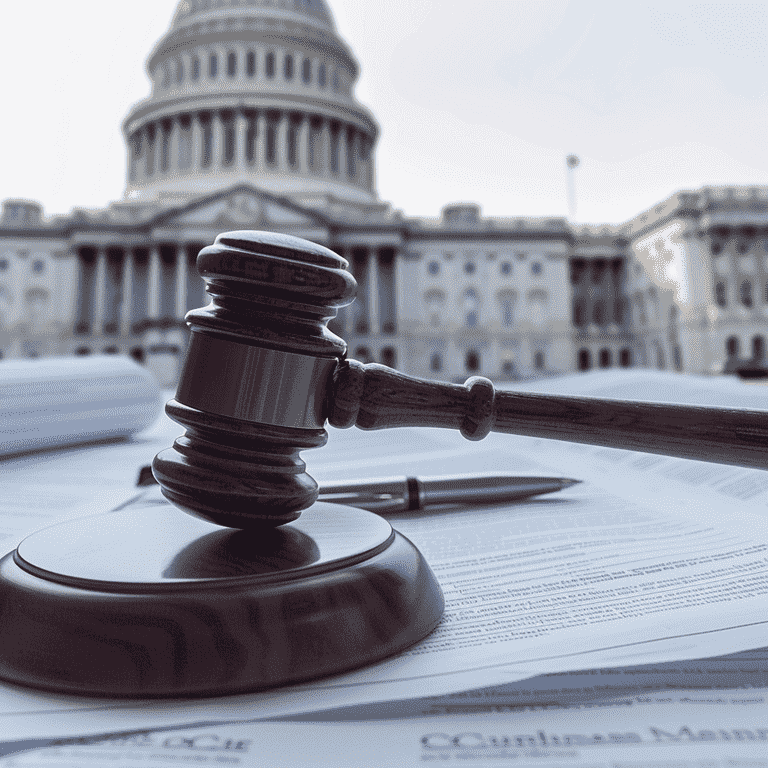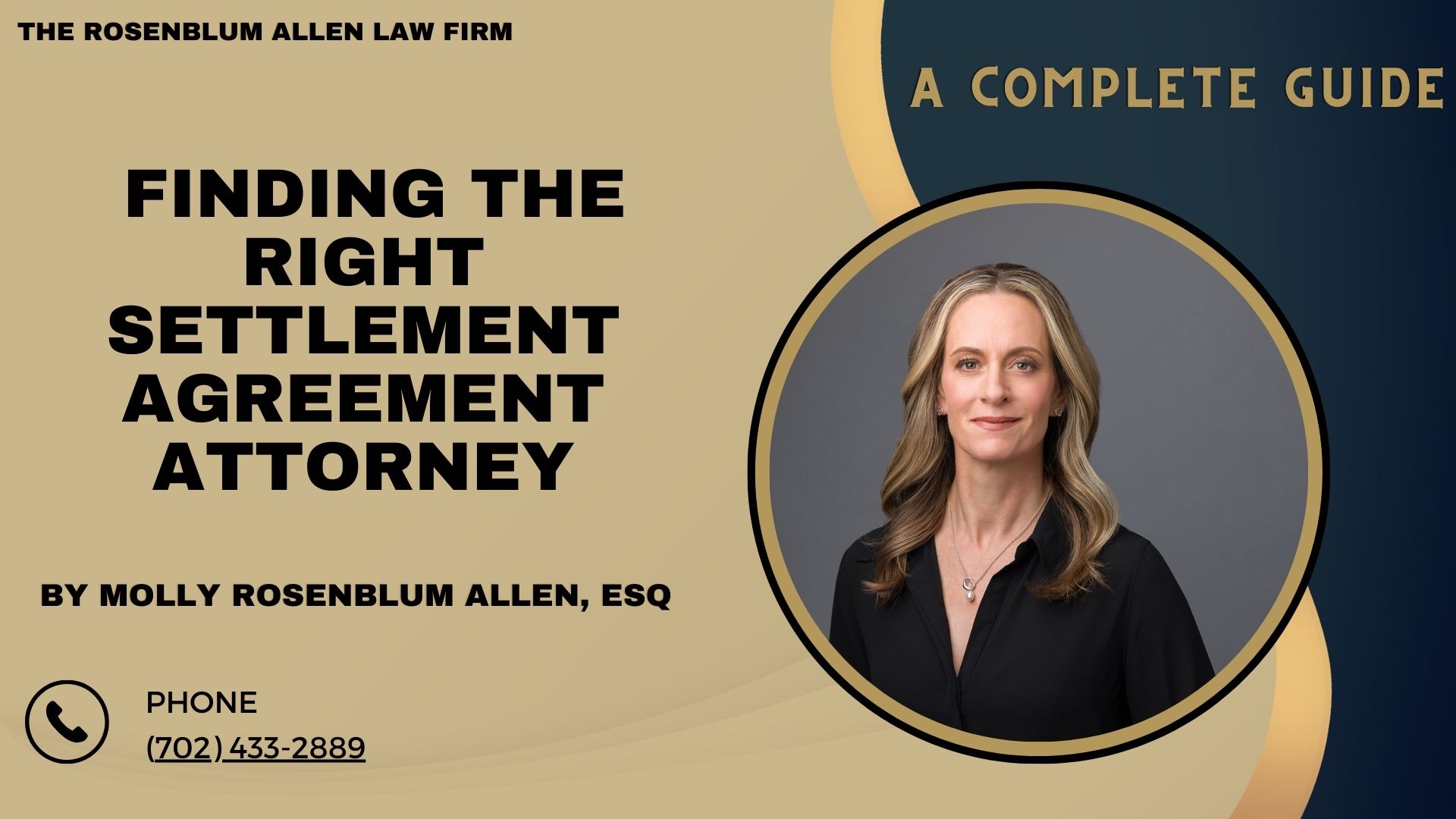Navigating legal disputes is complex. It can be daunting, especially when reaching a settlement. It may be a business disagreement, a personal injury claim, or an employment issue. The path to resolution is rarely simple. This is where the expertise of a settlement agreement attorney becomes invaluable. With the right legal partner, you can navigate your case’s complexities. You can also negotiate well and get a settlement that meets your needs. This guide will cover the key parts of settlement agreements. It will also cover how to choose an attorney who can best represent you.
 Understanding Settlement Agreements
Understanding Settlement Agreements
Settlement agreements are legal tools. They resolve disputes between parties without needing a court trial. These are binding contracts. They outline the settlement’s terms, including compensations, responsibilities, and agreed-upon actions.
Definition of a Settlement Agreement
A settlement agreement is a binding contract. It resolves a dispute between parties without going to court. The plaintiff usually agrees to drop any legal claims against the defendant. In return, they get a settlement or other compensation.
Critical Components of a Settlement Agreement
A well-crafted settlement agreement includes:
Parties Involved: Identifies all the parties to the agreement.
Settlement Amount: Specifies the compensation amount or the nature of the compensation.
Payment Terms: Details of how and when payments will be made.
Confidentiality: States if the terms of the agreement should remain confidential.
Release of Claims: A clause where the parties agree to release each other from further claims related to the dispute.
Dispute Resolution: Outlines how any future disagreements about the agreement will be resolved.
Types of Settlement Agreements
Settlement agreements can vary significantly depending on the nature of the dispute. Common types include:
Employment Disputes Often involve wrongful termination, discrimination, or unpaid wages.
Personal Injury Claims: Resolve disputes arising from accidents or injuries where one party seeks compensation for damages.
Business Disputes: Cover many issues, including contract disputes, partnership dissolutions, and intellectual property claims.
Family Law Agreements: Pertains to divorce, child custody, and alimony settlements.

The Role of a Settlement Agreement Attorney
Having a skilled attorney by your side is crucial. They will help you navigate the settlement process. Here’s how they can help:
Legal Advice and Guidance
Your attorney will give effective advice on your case’s legal merits. They will help you understand your rights and the effects of any settlement offer.
Drafting the Agreement
A detailed and well-structured agreement is vital to avoid future disputes. Your attorney will draft a document. It will clearly outline the settlement’s terms. The document will ensure they are legally sound and reflect your interests.
Negotiating Terms
Negotiating a settlement is an art. It requires understanding the law and human psychology. Your attorney will negotiate for terms that favor you. They will use their skills to do so.
Ensuring Enforceability
For a settlement agreement to be effective, it must be enforceable. Your attorney will make sure the deal follows all legal rules. This will make it hard for the other party to back out.
Picking the right settlement agreement lawyer is the first step. It is toward getting a good end to your dispute. As we delve further into this guide, we’ll explore how to choose an attorney who fits your needs. We’ll also cover the legal process and common pitfalls to avoid. This knowledge will empower you to approach your settlement confidently. You will have the support of competent legal counsel.

Selecting the Right Attorney
Finding the right attorney for your settlement agreement is key. It is critical to a successful outcome. Here’s what to look for and how to make the right choice:
Experience and Specialization
Why Experience Matters
Choose an attorney who specializes in cases like yours. Their experience can significantly affect your case’s outcome.
Checking an Attorney’s Background
Online reviews: Search for feedback from past clients.
Case examples: Ask for examples of similar cases they’ve handled.
Legal directories: Look up their ratings on sites like Avvo or Martindale-Hubbell.
Communication
Clear Communication Is Essential
Your attorney should make complex legal terms easy to understand. Good communication ensures you’re informed every step of the way.
Evaluating an Attorney’s Communication
First meeting: Notice if they listen and respond well to your questions.
Responsiveness: Check how quickly and thoroughly they or their office get back to you.
Costs
Understanding Attorney Fees
Learn about different fee structures, like hourly rates or flat fees. Discuss these openly from the start.
Fee Negotiation
Feel free to negotiate. Many attorneys offer payment plans. They also adjust fees based on your case’s complexity.
Reviews and Testimonials
Finding and Reading Reviews
Look for reviews on various platforms, including the firm’s site and social media.
Pay attention to comments on professionalism, empathy, and results.
Talking to Former Clients
Talk directly to past clients. Ask about their experience, focusing on communication, transparency, and the case outcome.

The Legal Process
Navigating the legal process involves several necessary steps:
Initial Consultation
Preparing for Your Meeting
Bring relevant documents and questions about their experience, strategy, and fees.
Questions to Ask
“Have you worked on similar cases?”
“How do you plan to handle my case?”
“What are your fees?”
Drafting the Agreement
What to Include
Your agreement should cover:
Payment details
Confidentiality
Release from further claims
Specific terms relevant to your case
Customizing Your Agreement
The attorney will tailor the agreement to protect your interests and meet your needs.
Negotiation
Effective Negotiation Strategies
Your attorney will use their skills to negotiate good terms. They will focus on your top priorities and be willing to compromise on lesser issues.
Dealing with Obstacles
Experienced attorneys know how to beat common negotiation challenges. For example, they face unrealistic demands from the other side.
Finalizing the Agreement
Ensuring Enforceability
Your attorney will ensure the agreement is binding. They will do this with things like witnessing signatures or notarization.
After the Agreement
After you sign the agreement, discuss any actions you must take. This includes how to enforce it if needed.
This simple guide aims to help you choose the right settlement agreement attorney. It will also help you understand the legal process ahead. This will ensure you confidently approach your settlement.

Common Mistakes to Avoid
When working toward a settlement, avoiding pitfalls can greatly affect the outcome. Here are some common mistakes and how to steer clear of them:
You were overlooking Details: Every clause in your agreement matters. Make sure you understand each part and its implications.
Weak Negotiation: Only accept the first offer while negotiating. Your attorney can help push for better terms.
Delaying Legal Help: Hiring an attorney late can limit your options. Get legal advice as soon as you need it.

Breaking It All Down
Reaching a settlement agreement can be straightforward with the proper legal guidance. You must understand how to pick the best attorney for your needs. You must be aware of common mistakes. And, you must answer your questions. This will prepare you to navigate the process. Remember, the goal is to meet your needs. This means avoiding the uncertainty and expense of going to court. With the right approach and legal help, you can move forward confidently. You can move towards a good outcome.

Frequently Asked Questions
What should I look for in a settlement agreement?
Look for clear terms covering payment details, actions by each party, confidentiality, and the dispute resolution process.
How can I find a reputable settlement agreement attorney?
Seek referrals from friends, colleagues, or online legal directories. Consider factors like experience, specialization, and client reviews.
What is the difference between a settlement agreement and a court judgment?
A settlement agreement is a voluntary arrangement between disputing parties, often facilitated by attorneys, without going to court. A court judgment is a decision made by a judge or jury after a trial.
How confidential is the information I share with my settlement agreement attorney?
Attorneys are bound by strict confidentiality rules, meaning they cannot disclose information about your case without your permission, except in rare cases.
Can a settlement agreement be modified after it’s been signed?
Modifications require the consent of all parties involved, usually negotiated with attorneys if circumstances change or adjustments are needed.
What happens if the other party breaches the settlement agreement?
The other party can be sued to enforce the agreement, potentially resulting in going to court to obtain a judgment against them.
How do I know if a settlement agreement is fair?
Your attorney will assess fairness based on legal strength, risks, benefits of trial versus settlement, and other factors specific to your case.
Is it necessary to have a witness or notary for a settlement agreement?
While not always legally required, having a witness or notary can enhance validity and deter challenges to authenticity.
How do I prepare for the initial consultation with a settlement agreement attorney?
Gather relevant documents and prepare a list of questions covering your concerns about the settlement process and your specific case.
Can I negotiate the settlement agreement terms and then have an attorney review it?
Yes, you can negotiate independently, but it’s advisable to have an attorney review the agreement to ensure your interests are protected.

Glossary
Settlement Agreement: A legally binding contract between disputing parties that outlines the terms of their resolution, including any compensation and actions to be taken to avoid litigation.
Plaintiff: The party who initiates a lawsuit seeking relief or damages from another party, known as the defendant.
Defendant: The party against whom a lawsuit is filed, accused of causing harm or breach as claimed by the plaintiff.
Legal Terms: Conditions and clauses within a legal document that specify the agreement’s obligations, rights, and responsibilities of all involved parties.
Confidentiality Clause: A provision in a legal agreement that requires parties to keep specific information secret and not disclose it to others.
Release of Claims: A declaration within a settlement agreement where parties agree to forgive and forego further legal action on past disputes covered by the contract.
Dispute Resolution: Methods and processes to resolve disagreements between parties, including negotiation, mediation, arbitration, and litigation.
Contingency Fee: A payment structure where an attorney’s fee is contingent upon winning the case, typically a percentage of the settlement amount or damages awarded.
Hourly Rate: A fee structure where an attorney charges for services based on the amount of time spent on a case, billed per hour.
Flat Fee: A predetermined, fixed fee charged by an attorney for specific legal services, regardless of the case’s duration or complexity.
Mediation: A form of alternative dispute resolution where a neutral third party, the mediator, helps disputing parties find a mutually acceptable solution.
Litigation: The process of taking legal action in court to resolve disputes between parties, which can result in a trial and judgment.
Notarization: The act of officially certifying a document by a notary public, verifying the identity of the signatories, and their understanding and willingness to agree.
Breach of Agreement: A violation of the terms specified in a contract, where one party fails to fulfill their obligations, giving the other party the right to legal remedies.
Enforceability: The ability of a legal agreement or contract to be upheld or enforced in a court of law based on its adherence to legal standards and requirements.

Additional Resources for You
To further assist you in your time of need, our lead attorney, Molly Rosenblum Allen, Esq., has created an array of resources covering various aspects of family law and related legal issues in Nevada. These resources are designed to provide you with detailed information and guidance:
Las Vegas Family Law Attorneys: Explore comprehensive legal support for family law matters, including divorce, custody, and more. Visit here.
Family Court Las Vegas: Get insights into navigating the family court system in Las Vegas effectively. Visit here.
Common Law Marriage in Nevada: Understand the legal standing of common law marriage in Nevada and what it means for your relationship. Visit here.
Name Change Las Vegas: Find out the process for legally changing your name in Las Vegas. Visit here.
Nevada Power of Attorney: Learn about the power of attorney in Nevada, how to set it up, and its implications. Visit here.
How to File a Motion in Family Court: Get step-by-step guidance on filing motions in family court for various legal matters. Visit here.
Family Court Mediation: Discover the role and benefits of mediation in family court disputes. Visit here.
Unbundled Attorney: Understand what unbundled legal services are and how they can benefit individuals seeking legal assistance. Visit here.
Nevada Adoption: Navigate the adoption process in Nevada with helpful tips and legal advice. Visit here.

Outside Resources for You
American Bar Association (ABA) – A leading national organization providing resources on various legal topics, including family law and dispute resolution. Visit ABA
National Association of Family Law Attorneys (NAFLA) – Offers insights into family law and a directory of reputable family law attorneys. Visit NAFLA
Avvo – A legal marketplace that provides lawyer directories and free legal advice, including a section dedicated to family law. Visit Avvo
Martindale-Hubbell – Renowned for its lawyer rating service, it also provides a wealth of information on law firms and legal issues. Visit Martindale-Hubbell
FindLaw – Offers a comprehensive library of legal information and resources, including guides on family law matters. Visit FindLaw
National Council of Juvenile and Family Court Judges (NCJFCJ) – Provides resources and training for professionals involved in family law, including mediation and dispute resolution. Visit NCJFCJ
Psychology Today – Therapy Directory – While not a legal resource, it offers a directory of therapists who can provide support through the emotional aspects of divorce and settlement processes. Visit Psychology Today

A Special Message from Our Lead Attorney, Molly Rosenblum Allen, Esq

Thank you for taking the time to read through our resources. I hope you’ve found them helpful. They are informative as you navigate through a challenging time. Knowing your legal options is the first step. It helps you make empowered decisions for your future.
If you want to discuss your situation and see how my team and I can help, call us at (702) 433-2889. Together, we can explore the best path forward and take the necessary steps to address your needs.
Looking forward to the opportunity to support you,
Molly Rosenblum Allen, Esq.




